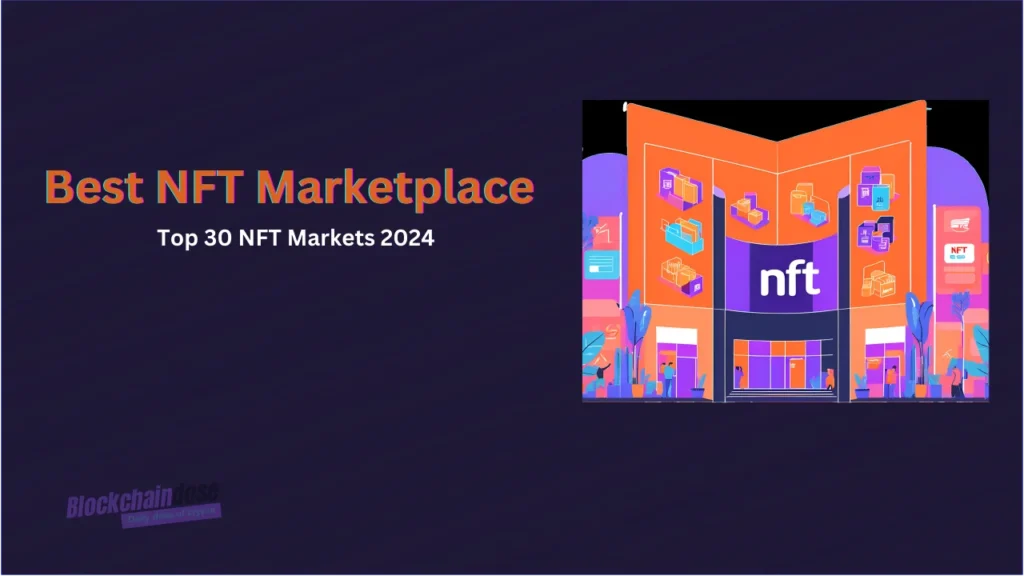One of the biggest problems crippling the world of Digital finance today is lacking privacy. Every year, millions of people lose millions, if not billions, of dollars owing to identity theft, a problem prevalent because of privacy issues.

For instance, as per research, 2023 is marked by record-breaking data breaches in the US, with about 353 million individuals being affected. Over the past few years, this increasing risk exposure has led to growing calls for privacy from crypto investors.
Cryptocurrencies emerged with a noble purpose: to revolutionize the finance realm by bringing transparency to blockchains. Yet, paradoxically, this transparency exposes investors to scams, hack attacks and identity theft risks.
As the demand for privacy surges, we look into the idea of anonymity in crypto, highlighting the most private crypto assets used today.
Why are Private Cryptocurrencies Important?
Let’s kick things off by saying this: privacy is the lifeblood of the financial universe.
Note this: blockchains dutifully record every transaction detail publicly and highly transparently. Yes, all your financial activities are readily available for anyone to view.
While important in institutional setups, this financial transparency is primarily a risk to individual investors. Why, you ask? Well, it opens you up to many security risks that could lead to massive losses in funds. That’s why privacy remains an unwavering prerequisite requirement of every investor.
Here are several reasons why privacy matters in blockchain:
- Privacy is a fundamental human right. Just like oxygen, privacy is a non-negotiable requirement for all human beings. It is the shield for crypto investors against scam artists.
- Privacy helps protect crypto investors from manipulation, scams and even hack attacks.
- It also helps in preventing issues like identity theft.
- Anonymity protects against restrictions on buying and selling that may be imposed against you.
- Tainted Coins? No Thanks! Without privacy, some of your coins could be tainted by illegal activities.
Features Used by Private Cryptocurrencies
Blockchain networks, L2 solutions, wallets, and even general crypto projects have implemented different tools to bolster privacy. Here are the most popular privacy tools in blockchain:
Zero Knowledge proofs
A concept that saw its birth in the 1980s, ZKPs have recently been gaining traction in the crypto realm. Their first blockchain implementation came with Zcash. Since then, ZKPs have seen increased adoption in various projects, including Horizen, and even layer two solutions like Polygon and zkSync are leveraging this tech.
So, how do ZKPs bolster privacy?
Encoded at the heart of ZKPs is a system that ensures statements can be verified without revealing all details. This means a transaction’s validity will be verifiable without sharing details like the senders and recipient’s wallet addresses.
Stealth Addresses
Second in line, stealth addresses. What is a stealth address?
A stealth address is a one-time crypto wallet address fashioned to bring anonymity to crypto transactions. The transparency associated with blockchain ledger means that everyone can see every transaction.
Why is this traceability at times risky?
If any details associated with your wallet address are seen, the transactions can be traced to you. Scammers and malicious actors could take advantage of such private details.
The stealth addresses system works as follows:
- The sender creates a stealth address for the transaction recipient
- The transaction is carried out usually, with the stealth address as a proxy.
- While the transacted asset goes directly to the recipient’s address, the proxy conceals the details of the actual address.
Ring Signatures
Ring signatures refer to a class of digital signatures which any member of a particular group can fully and generally perform. Let’s backtrack!
In a traditional setup, digital signatures are defined by just one key. This key can be directly linked to the owner, hence high traceability. Ring signatures come to solve this issue.
If one of the ring signatures signs a particular transaction, it means every participant in a group has endorsed the message. Any attempts to trace the individual in a group who signed the message will bear futility.
The ring signature system essentially functions as follows:
- Paul, a user, starts a transaction.
- Monero broadcasts this transaction to the entire network
- The chain adds past transaction signatures, which are simply decoys
- The pool of past signatures, plus the actual signature, creates a ring signature, which aids in completing the transaction. Paul’s signature, together with the decoys, all appear the same. It’s impossible actually to know which signature completed the transaction.
CoinJoins or Coin Mixers
Finally, mixers.
Mixers, CoinJoins or crypto tumblers are systems where crypto assets are pooled together and mixed with coins from other investors. This shuffling makes it nearly impossible to trace the origin of one individual crypto asset. As such, the transactions remain obfuscated.
7 Best Private Cryptocurrencies
Monero (XMR)
The most private crypto asset in the blockchain universe is Monero (XRM). With a market cap of $2.5 billion, Monero’s XRM is also the largest private crypto asset.
So, how does Monero achieve top privacy? As discussed earlier, it is through a merger of stealth addresses and ring confidential signatures (RCT).
Monero operates in a highly open-source style. Essentially, coding experts can prove the validity of the claim that Monero is highly private by just reading the code.
The XRM crypto has been used in some illegal exchanges associated with the dark web. However, companies like Stakebox, InviBox and NordVPN have been seen to support XRM.
Just recently, Monero was delisted from Binance Exchange. Based on a statement released soon after the delisting, Binance wanted to compromise XRM’s private nature.
Zcash (ZEC)

Zcash comes second in our list of top private crypto assets. Launched in October 2016 by Electronic Coin Company, Zcash climbed the ranks fast to be among the top players in the crypto business. The coin is currently positioned at number 155 based on Coinmarketcap rankings.
So, how does Zcash achieve top privacy within the blockchain realm?
As per their documentation, Zcash leverages an iteration of Zero-Knowledge proofs called Zero-Knowledge Succinct Non-Interactive Argument of Knowledge (zk-SNARKs). As such, users can prove the existence of transactions without sharing additional details rather than proof.
Zcash is used in networks like Gamestop (through the SPEDN app), Dunkin Donuts (through the SPEDN app), The Tor Project, WikiLeaks and Freedom of the Press.
Horizen (ZEN)

Another crypto asset, Horizen, makes our list of top private coins. Born in May 2017, as Zencash by Rolf Versluis and Rob Viglione, Horizen aimed to bring a peer-to-peer money system. In 2018, ZenCash was rebranded to the now Horizen.
ZEN, the actual native crypto coin of the network, is trading among the top 400 coins in the crypto ecosystem based on market cap.
The big question is, How does Horizen achieve top privacy?
It’s through the use of zk-SNARKs, a system pioneered by Zcash. Using ZKPs, Horizen can attain a top speed of 10 million transactions per second.
Horizen can help in shops like Bitcoin Meister, Bangkok Express Restaurant and Darkcrypt Networks.
Dash (DASH)

Today, Dash is the third largest private crypto asset. It is the brainchild of Evan Duffield. Launched in January 2014 as XCoin, DASH was later transformed into Darkcoin. It gained traction fast, standing among the top cryptos in the market.
So, what is DASH’s privacy feature? PrivateSend.
Dash leverages a feature called PrivateSend, which leverages the coin-mixing technique discussed above. This way, it’s impossible for anyone to determine where one particular crypto asset originates from.
Verge (XVG)
Launched in October 2018 as DogeCoinDark, Verge has grown into a widely used private crypto asset in entertainment. But how does it achieve privacy?
It’s one of the cryptocurrencies using the most unique privacy features. In essence, XVG leverages ToR to bolster anonymity. ToR networks focus on obfuscating the IP address of the persons transacting.
Verge also leverages the stealth addresses mechanism to hide the actual transacting addresses, specifically of the recipient.
Among the applications of Verge include EarthVPN and Ganja.com.
ByteCoin (BCN)

This stands among the earliest private cryptocurrencies, launched in 2012 when the crypto universe was still in its infancy. It’s highly unpopular in the crypto realm but also highly private.
Bytecoin combines several features:
- Ring signatures
- Private (Stealth) addresses
- CryptoNote
Grin (GRIN)
Finally Grin!
Launched in January 2019, GRIN leverages the MimbleWimble protocol to bring privacy. The Mimble Wimble protocol aims to ensure that no fraudulent coins have been created and the parties transacting are the owners of the crypto keys.
The Mimble Wimble protocol leverages Pederson Commitment, a technique that verifies the exact moment of the transaction. It completely encrypts the transaction amounts for privacy.
Are Private Cryptocurrencies Legal?
Well, it depends.
The legality of using privacy coins first depends on the area of residence. In regions with crypto bans, including China, Morocco, Algeria, Egypt, Bangladesh, and more, it is illegal to hold private coins.
In countries like the US, where crypto holding is not illegal, privacy coins can also be used. However, over the years, watchdogs across the globe have been trying to attack privacy coins, citing use in black markets and illegal activities. For instance, a few years ago, the Secret Service recommended that Congress introduce privacy-focused asset regulations.
In countries like Japan, South Korea and Australia, the trading and holding of private crypto assets is illegal.




